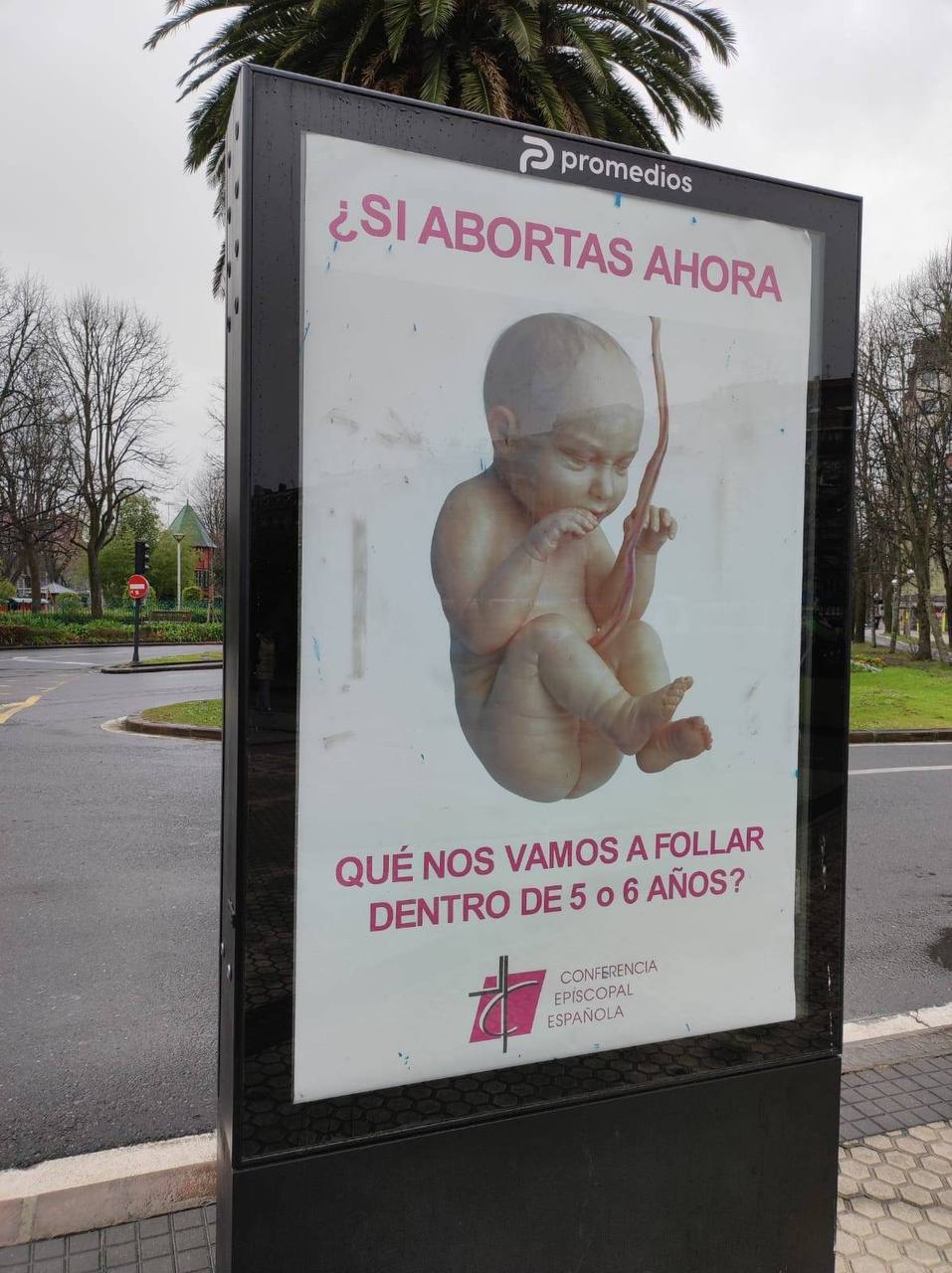85% of women who go to abortion prefer the instrumental method, while the industry "imposes" the pharmacological
- The Association of Authorized Clinics for Pregnancy Termination has published an investigation. She asked for her decision and reasons for a maximum of 1,536 women who had sought abortion in the ninth week of pregnancy and who had chosen the two methods. 85.74% chose the instrumental method. According to the following data, the association of clinics has reported that if the pharmacological method is being disseminated it is not the most desirable: "The extension of the pharmacological method to the detriment of the instruments is not a solution for the object of professional conscience, the stigmatization of abortion or the lack of hospital abortion centers in some territories".

Here you can read in full the research made public by the Association of Authorized Clinics for Pregnancy Termination in Spain (HEBK).
85.74% of the 1,536 women surveyed preferred the instrumental method over the pharmacological method. The main reasons for this are: speed and safety (71.9%) and avoidance of pain (29.2%). People who have opted for the pharmacological method have been 14.25% and most have argued “fear of intervention” (55.7%).
Women who have opted for one option or another are comparable to their age, origin and employment status. But there are differences in the gynecological experience: those who have not had children, those who have not had a previous abortion and those who have less gynecological experience are more those who have opted for the pharmacological method. Pregnancies with fewer weeks of gestation (mean 6 weeks) also increase among those who opt for the pharmacological method. On the other hand, it seems that those who have opted for the pharmacological method have more resources to manage discomfort in the days after abortion (either due to working conditions or lack of surveillance work).
After testing, much greater satisfaction with instrumental methods
91% of women who have previously had instrumental abortions repeat the same technique. In contrast, 58.5% of the women who had been previously aborted by the pharmacological method have decided to change the technique.
There are also differences in the score that each technique obtained from women after abortion: The mean score obtained by the instrumental method and by the pharmacological method was 9.27.
Increased pain and lateral damage with the pharmacological method
The study reveals that 91% of the women who have used the pharmacological method have felt pain during the expansion, which has been 7.7 points on average. In the instrumental method, women are sedan and painless.
After abortion, both methods leave pain in the coming days and are similar over time but with much greater intensity the pharmacological method: 42.18% of the women who have used the pharmacological method have felt more menstrual pain than 19.38% of the women who have used the instrumental method. People who have felt very intense or extreme pain have been 8.64% among women who have opted for the pharmacological method and 2.35% among those who have used the instruments.
More than half of the women who used the pharmacological method (51.6%) have suffered collateral damage. The most common are vomiting, chills and diarrhea. Women who have used the instrumental method have suffered lateral damage of 1.1%.
"The pharmacological method is a method promoted by the pharmacoindustry, women seek the accompaniment of physicians"
Using the data from the study, the CVT concludes the following: "The extension of the pharmacological method to the detriment of the instruments is not a solution for the object of professional consciousness, the lack of training, the stigmatization and persecution of abortion, the lack of sanatoria in some territories to abort, neither for the distance women must travel for the latter, nor for the lack of public hospital centers to abort...". They denounce that it is a question of covering all these deficiencies through a pharmacological technique that "is necessary, but must be accompanied by the instrumental technique, as the World Health Organization points out".
The association has pointed out that the pharmacological technique distances the woman from the doctor and that "of course, it generates fewer professional and ethical problems to the doctor, as it is the only one that performs the process". On the contrary, most women "want to make them available to professionals, feel assisted in the process, that abortion is as fast as possible, without pain and without awareness of this action". The prioritization of medical interests and the subjugation of women's rights is a "false exit that will harm health security and the right to decide", the association of clinics has pointed out.
HEBK has brutally denounced why the drug method is spreading in hospitals: "The pharmacological industry is imposing the pharmacological method to the detriment of instruments. There is nothing more to look at the financing line of congresses, the sources that finance the research of many professionals... to realize that the imposition of the pharmacological method is based on economic benefits, which are far from the concerns, experience, health and personal and intimate situations of women".
Duela aste batzuk, gurean egon ziren El Salvadorko eta Kanarietako emakumeen eskubideen aldeko hainbat aktibista. Sexu- eta ugalketa-eskubideez eta eskubide horiek urratzeak emakumeengan dituen ondorioez aritu gara; hala nola El Salvadorren berezko abortuak izanda homizidio... [+]
A few weeks ago we heard Trump in the televised debate on the existence in his country of democratic states that authorize abortion after the birth of his son.
Judging by the character, it seems an absurd and improvised idea, but that same falsehood was heard in 2019 by Adolfo... [+]
Abortuaren eskubidea Frantziako konstituzioan sartu da aste honetan. Baina abortatzeko eskubidea ez da gaur goizeko afera. Jadanik 1970. hamarkadaren hasieran mugimendu azkarrak izan ziren eskubide horren erdiesteko Ipar Euskal Herrian.
Espainiako Estatuan Abortuaren aurkako lobbyak Abortuaren Legea erausteko beste saiakera bat egiten ari dira Gaztela eta Leonen. Hango gobernukide den Vox-ek iragarri du abortatu nahi duten emakumeei fetuaren taupadak entzunarazi edota ekografiak ikusaraziko dien protokoloa... [+]




















